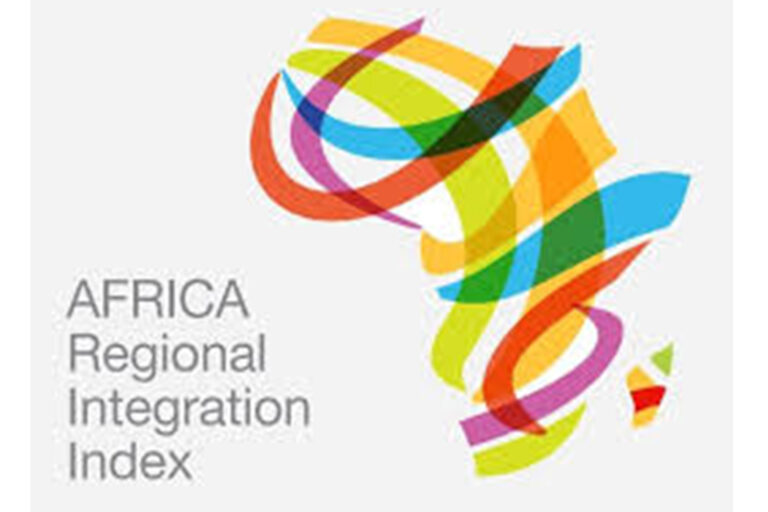The Document Registration and Authentication Agency (DARA) introduced a strong document verification system that is used in its daily operation.
The agency that introduced technology based schemes in its operation about nine years ago by using online registration process, now applied a Quick Response code (QR code) in its document authentication and registration operation.
Muluken Amare, Director General of DARA, said that the new scheme is the beginning of the ongoing new technologically advanced operation that the agency will apply in the near future.
He said that the new system will play a big role to tackle forgery and safeguard citizens from illegal actors.
The new QR code that is printed at the original authenticated document will be readable by QR code reader.
Muluken, who was the first IT director that led the technological automation at DARA and develop the online infrastructure, told Capital that the new scheme will cut back forgery allegation.
“In the past anyone who have a fake ID will try to get for instance power of attorney and may use forged document and abuse and right and property of others without their knowledge, but the current QR code for instance will help organizations like banks to re-verify the document by their own,” he added, “in the past banks assigned their staff and send them at DARA to authenticate the documents, which takes time and money, but the new system will cut this.”
The agency has also started capturing a photo of those who give power of attorney that will also make the authentication process more strong.
“Meanwhile if a photo is not available or not printed with the documents the QR code will show the picture of the individual that give the power of attorney,” he said.
The new security features are additional proof of the way to maximize the recording of documents besides the traditional authentication scheme that is mainly based on stamps.
Digitizing all documents at DARA was launched since the beginning of this budget year and almost all of the documents of the year are recorded on soft copy, according to the head the public institution.
The Director General further said that additional security features that are based on technology are under development.
“In the past we have developed several software to improve our operations that might be for in-house purpose and also for others,” Muluken said.
One of the upcoming applications that DARA will introduce is its own QR code reader. “Currently we are using an application that is available at open sources but in the near future we will introduce our own application,” the Director General said.
He said that his agency is focusing on the advancement of technology than expanding branches aggressively which they used to do in the past. “We focus for technology that might significantly improve our operation, while expanding branches have its own costs than using technologies,” he added.
“We are under a routine change regarding technology use,” he said.
With the way the country is expanding the electronic transaction, Muluken said that his agency is ready to go with it, while reminding that some of legal frameworks of the agency need to be improved to go with the new government scheme.
For instance customers should visit a branch of DARA to sign on the documents for final authentication process but if the law changed and allowed us to approve electronic signature the scheme will be very easy, according to the Director General.
“Despite to move on this step the country should have a clear ID system. National ID will make clear the issue and alleviate the forgery on the ID system,” he added.
Currently the federal government is working to introduce National ID.
Currently the agency has 14 branches and manages 6,100 customers a day, which is tripled compared with five years ago. “The awareness of the public is expanding, the society is coming at DARA to seal business deals legally than the traditional scheme,” he explained why the number of users at the agency increased.
Agency introduces QR codes for document authentication
Africa Regional Integration Index underlines integration as key to building more resilient economies
The second Africa Regional Integration Index (ARII 2019) was launched on May 22 by the Economic Commission for Africa (ECA), the African Development Bank and the African Union Commission (AUC), with a call to action to African economies to deepen their integration.
The 2019 Index, which builds on the first edition published in 2016, provides up-to-date data on the status and progress of regional integration in Africa. It also helps to assess the level of integration for every Regional Economic Community (REC) and their member countries.
The report observed that although 20 countries score above average, no African country can be considered well integrated in its region. Even the most integrated country, South Africa, scores 0.625 less than two-thirds of its potential on the scale.
The report found that much more needs to be done to integrate regional economies to make them more resilient to shocks such as the current COVID-19 pandemic. Overall, the Index shows that levels of integration on the continent are relatively low with an average score of 0.327 out of 1.
“Whereas the Index edition we are releasing today has data cut off points in 2019, the present COVID-19 pandemic has reopened the question of whether enough is being done in advancing regional integration as a means to help Africa withstand systematic shocks such as the one being experienced today,” said Stephen Karingi, Regional Integration Division Director at the ECA.
“This index is both a measurement exercise and a call to action; to build resilient economies through integration,” he added. “It will identify the solutions needed to truly build an integrated Africa.”
Jean-Denis Gabikini, Acting Director of the AUC’s Economic Affairs Department, welcomed the collaboration in producing the Index. He noted that the Index covers issues of intellectual property, competition policy, investment and digital trade which are critical to the successful negotiations of Phase II and III of AfCFTA.
“To achieve an “integrated, prosperous and peaceful Africa, representing a dynamic force in the concert of nations”, this ARII report will support AU Member States and RECs to address industrialisation and value addition priorities for the development of the continent,” Gabikini said.
With the establishment of RECs and the creation of AfCFTA, Africa has reinforced regional integration as a major development priority for the continent under the 2012 Boosting Intra-African Trade (BIAT) Action Plan.
The Index ranks the level of integration of African countries within their respective RECs and also with the rest of the continent. It scores across five key dimensions: trade, productive capacity, macroeconomic policy, infrastructure, and free movement of people.
Among the eight RECs recognised by the AU, the East African Community (EAC) scored highest for overall integration, with the Southern African Development Community (SADC) coming last.
The African Development Bank’s Director for Regional Development and Regional Integration, Moono Mupotola, said the Index was a useful tool for tracking progress on the regional integration front and would help countries identify priorities to improve integration.
“The crippling effects of COVID-19 illustrate the need for enhanced production of African finished goods and services that can readily be traded across the continent,” Mupotola said.
David Luke, coordinator of the African Trade Policy Centre (ATPC) at the ECA pointed out that the productive and infrastructure dimensions of regional integration are intricately linked. Tackling these two dimensions along with implementing the AfCFTA would be a massive boost for trade, he said.
UNCTAD, the five UN regional commissions join forces to help developing countries tackle trade and transport challenges
A new joint UN project is seeking to help governments and businesses keep transport networks and borders operational and facilitate the flow of goods and services, while containing the spread of the coronavirus.
The project launched this month will implement UN solutions, standards, guidelines, metrics, tools and methodologies to help developing countries build transport, trade and logistics resilience in the wake of COVID-19.
The initiative brings together UNCTAD and the five UN regional commissions for Africa (ECA), Europe (ECE), Latin America and the Caribbean (ECLAC), Asia and the Pacific (ESCAP), and Western Asia (ESCWA), with funding managed by the UN Department of Economic and Social Affairs.
The project puts a premium on global reach and regional presence, international cooperation, as well as exchange of knowledge and good practices from all over the world.
It seeks to equip governments in developing and least developed countries to adapt to new post-COVID-19 conditions by tapping into UN expertise, standards, tools and guidance, while considering their specific and local conditions.
It comprises three clusters designed to match existing and emerging standards and best practices in transport and trade facilitation with new concerns and demands arising from COVID-19 on cross-border freight transport operations and trade transactions.
The first cluster focuses on contactless solutions and good practices. It aims at reducing physical contact among people in cross-border supply chains by facilitating the flow of goods without spreading the virus.
This will be done by implementing UN conventions and standards for seamless harmonized electronic exchange of data in digital transport corridors, border crossings and trade operations, as well as developing smart rail and road connectivity.
The second cluster is geared towards maximizing seamless connectivity. It focuses on eliminating obstacles to cross-border trade and transport operations arising from the COVID-19 crisis.
It aims at promoting synergies among border agencies by empowering national trade facilitation committees, improving customs automation and identifying non-tariff barriers.
The third cluster focuses on collaborative solutions on transport, trade and logistics operations by strengthening regional and sectoral cooperation to facilitate joint actions and solutions in responding to the COVID-19 pandemic.
It will give special attention to international transit issues, which are multilateral, and sectoral cooperation for ports as nodes of the global maritime shipping network, rooted in regional and national contexts.
The three clusters build on the UN’s proven conventions, standards, tools and instruments, such as UNCTAD’s Automated System for Customs Data (ASYCUDA), the eTIR International System (TIR Convention) carnet and trade data exchange standards of the UN Centre for Trade Facilitation and Electronic Business (UN/CEFACT), as well as the Framework Agreement on Facilitation of Cross-border Paperless Trade.
The clusters will also tap into regional intergovernmental cooperation platforms, analytical work and capacity-building programmes of the five UN regional economic commisions.
National Aviation College
National Aviation College has provided support for those that are affected by the outbreak of COVID19 and are considered vulnerable. The college, which is a sister company of National Airways, said that it has provided for those in need at the area located around the college, which is located around commonly known as 22 Mazoria. The aviation college that provides training on first and second degree besides short term trainings has also announced that it has continued its online education platform to fill the gap that the outbreak forced to terminate.





